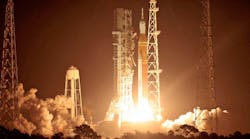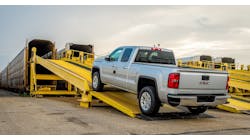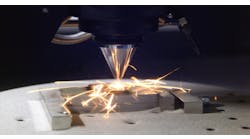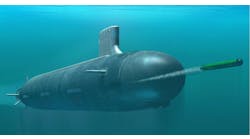Major aerospace-sector manufacturers celebrated the takeoff of NASA’s Space Launch System from the Kennedy Space Center on November 16. It was the start of the 26-day, 40,000-mile Artemis I mission that will gather information for NASA’s future deep-space exploration program.
A 212-foot rocket built by Boeing, called the Space Launch System, completed its task after eight-and-a-half minutes, with the core stage separating from the upper stage of the rocket, and sending the Orion spacecraft on its first orbit around the Moon.
"Today, this country now has a super-heavy lift launch capability for the first time in 50 years," stated Boeing Space and Launch Div. SVP Jim Chilton. "This test flight was a demonstration of engineering innovation, and we are ready to support NASA and their international partners in returning humans to deep-space exploration."
The SLS core stage demonstrated several important functions, Boeing explained, including fueling both tanks, actuating the hydraulic system, igniting the engines, running thrust vector control programs in flight, depleting the fuel tanks, shutting down the engines, and conducting successful separation and disposal maneuvers.
The lift-off was aided by rocket boosters supplied by Northrop Grumman. And Aerojet Rocketdyne provided engines and high-pressure tanks for both the SLS rocket and Orion spacecraft.
Orion, now in orbit around the Moon, was developed and built by Lockheed Martin. Lockheed describes it as the first spacecraft with the technology needed for the extremes of deep space, including life support, navigation, communications, and radiation shielding, with “the world's largest heat shield that will protect astronauts and help return them safely home.”
"Through a nationwide industry team that has also leveraged an international industrial base, this launch and mission unite the skills of a dedicated workforce and innovative technologies to make a global impact.," according to Lockheed Martin Space EVP Robert Lightfoot.
Lockheed also produced the LunIR CubeSat satellite – one of 10 small satellites that will be deployed during the Artemis I mission. Each CubeSat has a specific mission to collect information about the solar system or demonstrate technologies that may benefit the design of future lunar and deep-space missions, NASA reported.
“The Space Launch System rocket delivered the power and performance to send Orion on its way to the Moon,” said Mike Sarafin, Artemis I mission manager. “With the accomplishment of the first major milestone of the mission, Orion will now embark on the next phase to test its systems and prepare for future missions with astronauts.”






